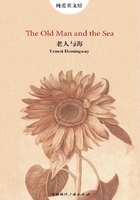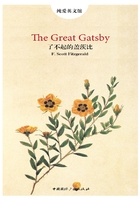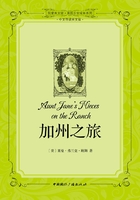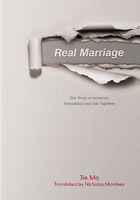"Yes. My peace of mind is doubly involved in it; for not only is it horrible to suspect a person who has been what he has been to me of such designs, but what must it make me appear to myself? What in a situation like mine, but a most shamefully unguarded affection could expose me to—"
"How then," asked her sister, "would you account for his behaviour?"
"I would suppose him—Oh! how gladly would I suppose him only fickle, very, very fickle."
Elinor said no more. She was debating within herself on the eligibility of beginning her story directly or postponing it till Marianne were in stronger health; and they crept on for a few minutes in silence.
"I am not wishing him too much good," said Marianne at last with a sigh, "when I wish his secret reflections may be no more unpleasant than my own. He will suffer enough in them."
"Do you compare your conduct with his?"
"No. I compare it with what it ought to have been; I compare it with yours."
"Our situations have borne little resemblance."
"They have borne more than our conduct. Do not, my dearest Elinor, let your kindness defend what I know your judgment must censure. My illness has made me think. It has given me leisure and calmness for serious recollection. Long before I was enough recovered to talk, I was perfectly able to reflect. I considered the past; I saw in my own behaviour since the beginning of our acquaintance with him last autumn nothing but a series of imprudence towards myself and want of kindness to others. I saw that my own feelings had prepared my sufferings and that my want of fortitude under them had almost led me to the grave. My illness, I well knew, had been entirely brought on by myself, by such negligence of my own health as I had felt even at the time to be wrong. Had I died, it would have been self-destruction. I did not know my danger till the danger was removed; but with such feelings as these reflections gave me, I wonder at my recovery, wonder that the very eagerness of my desire to live, to have time for atonement to my God and to you all, did not kill me at once. Had I died, in what peculiar misery should I have left you, my nurse, my friend, my sister! You, who had seen all the fretful selfishness of my latter days; who had known all the murmurings of my heart!How should I have lived in your remembrance! My mother too! How could you have consoled her! I cannot express my own abhorrence of myself. Whenever I looked towards the past, I saw some duty neglected or some failing indulged. Everybody seemed injured by me. The kindness, the unceasing kindness of Mrs. Jennings, I had repaid with ungrateful contempt. To the Middletons, the Palmers, the Steeles, to every common acquaintance even, I had been insolent and unjust; with a heart hardened against their merits, and a temper irritated by their very attention. To John, to Fanny, yes, even to them, little as they deserve, I had given less than their due. But you, you above all, above my mother, had been wronged by me. I, and only I, knew your heart and its sorrows; yet to what did it influence me? Not to any compassion that could benefit you or myself. Your example was before me; but to what avail? Was I more considerate of you and your comfort? Did I imitate your forbearance or lessen your restraints by taking any part in those offices of general complaisance or particular gratitude which you had hitherto been left to discharge alone? No not less when I knew you to be unhappy than when I had believed you at ease did I turn away from every exertion of duty or friendship; scarcely allowing sorrow to exist but with me,regretting only that heart which had deserted and wronged me, and leaving you, for whom I professed an unbounded affection, to be miserable for my sake."
Here ceased the rapid flow of her self-reproving spirit; and Elinor,impatient to soothe though too honest to flatter, gave her instantly that praise and support which her frankness and her contrition so well deserved. Marianne pressed her hand and replied:
"You are very good. The future must be my proof. I have laid down my plan, and if I am capable of adhering to it my feelings shall be governed and my temper improved. They shall no longer worry others nor torture myself. I shall now live solely for my family. You, my mother, and Margaret must henceforth be all the world to me; you will share my affections entirely between you. From you, from my home, I shall never again have the smallest incitement to move; and if I do mix in other society it will be only to show that my spirit is humbled, my heart amended, and that I can practise the civilities, the lesser duties of life, with gentleness and forbearance. As for Willoughby, to say that I shall soon or that I shall ever forget him would be idle. His remembrance can be overcome by no change of circumstances or opinions. But it shall be regulated; it shall be checked by religion, by reason, by constant employment."
She paused—and added in a lower voice,"If I could but know his heart, everything would become easy. "
Elinor, who had now been for some time reflecting on the propriety or impropriety of speedily hazarding her narration, without feeling at all nearer decision than at first, heard this; and perceiving that as reflection did nothing, resolution must do all, soon found herself leading to the fact.
She managed the recital, as she hoped, with address; prepared her anxious listener with caution; related simply and honestly the chief points on which Willoughby grounded his apology; did justice to his repentance; and softened only his protestations of present regard. Marianne said not a word. She trembled; her eyes were fixed on the ground, and her lips became whiter than even sickness had left them. A thousand inquiries sprang up from her heart, but she dared not urge one. She caught every syllable with panting eagerness; her hand, unknowingly to herself, closely pressed her sister's, and tears covered her cheeks.
Elinor, dreading her being tired, led her towards home; and till they reached the door of the cottage, easily conjecturing what her curiosity must be though no question was suffered to speak it, talked of nothing but Willoughby and their conversation together, and was carefully minute in every particular of speech and look where minuteness could be safely indulged. As soon as they entered the house Marianne, with a kiss of gratitude and these two words just articulate through her tears,"Tell mama," withdrew from her sister nd walked slowly upstairs. Elinor would not attempt to disturb a solitude so reasonable as what she now sought; and with a mind anxiously prearranging its result, and a resolution of reviving the subject again, should Marianne fail to do it, she turned into the parlour to fulfil her parting injunction.
Chapter 11
MRS. DASHWOOD DID not hear unmoved the vindication of her former favourite. She rejoiced in his being cleared from some part of his imputed guilt; she was sorry for him; she wished him happy. But the feelings of the past could not be recalled. Nothing could restore him with a faith unbroken, a character unblemished to Marianne. Nothing could do away the knowledge of what the latter had suffered through his means, nor remove the guilt of his conduct towards Eliza. Nothing could replace him, therefore, in her former esteem, nor injure the interests of Colonel Brandon.
Had Mrs. Dashwood, like her daughter, heard Willoughby's story from himself, had she witnessed his distress and been under the influence of his countenance and his manner, it is probable that her compassion would have been greater. But it was neither in Elinor's power nor in her wish to rouse such feelings in another by her retailed explanation, as had at first been called forth in herself. Reflection had given calmness to her judgment and sobered her own opinion of Willoughby's deserts;she wished, therefore, to declare only the simple truth, and lay open such facts as were really due to his character without any embellishment of tenderness to lead the fancy astray.
In the evening, when they were all three together, Marianne began voluntarily to speak of him again; but that it was not without an effort, the restless, unquiet thoughtfulness in which she had been for some time previously sitting—her rising colour, as she spoke—and her unsteady voice, plainly showed.
"I wish to assure you both," said she, "that I see everything as you can desire me to do."
Mrs. Dashwood would have interrupted her instantly with soothing tenderness had not Elinor, who really wished to hear her sister's unbiassed opinion, by an eager sign engaged her silence. Marianne slowly continued:
"It is a great relief to me—what Elinor told me this morning. I have now heard exactly what I wished to hear." For some moments her voice was lost; but recovering herself, she added, and with greater calmness than before, "I am now perfectly satisfied, I wish for no change. I never could have been happy with him, after knowing, as sooner or later I must have known, all this. I should have had no confidence, no esteem. Nothing could have done it away to my feelings."
"I know it—I know it," cried her mother. "Happy with a man of libertine practices! With one who had so injured the peace of the dearest of our friends and the best of men! No, my Marianne has not a heart to be made happy with such a man! Her conscience, her sensitive conscience, would have felt all that the conscience of her husband ought to have felt."
Marianne sighed and repeated, "I wish for no change."
"You consider the matter," said Elinor, "exactly as a good mind and a sound understanding must consider it; and I dare say, you perceive, as well as myself, not only in this but in many other circumstances, reason enough to be convinced that your marriage must have involved you in many certain troubles and disappointments in which you would have been poorly supported by an affection, on his side, much less certain. Had you married, you must have been always poor. His expensiveness is acknowledged even by himself, and his whole conduct declares that self-denial is a word hardly understood by him. His demands and your inexperience together on a small, very small income, must have brought on distresses which would not be the less grievous to you from having been entirely unknown and unthought of before.Your sense of honour and honesty would have led you, I know, when aware of your situation, to attempt all the economy that would appear to you possible;and perhaps, as long as your frugality retrenched only on your own comfort, you might have been suffered to practise it, but beyond that—And how little could the utmost of your single management do to stop the ruin which had begun before your marriage?—Beyond that,had you endeavoured,however reasonably,to abridge his enjoyments,is it not to be feared that instead of prevailing on feelings so selfish to consent to it, you would have lessened your own influence on his heart and made him regret the connection which had involved him in such difficulties?"
Marianne's lips quivered, and she repeated the word "Selfish?" in a tone that implied: "Do you really think him selfish?"
"The whole of his behaviour," replied Elinor, "from the beginning to the end of the affair has been grounded on selfishness. It was selfishness which first made him sport with your affections; which afterwards, when his own were engaged, made him delay the confession of it, and which finally carried him from Barton. His own enjoyment, or his own ease, was in every particular his ruling principle."
"It is very true.My happiness never was his object."
"At present," continued Elinor, "he regrets what he has done. And why does he regret it? Because he finds it has not answered towards himself. It has not made him happy. His circumstances are now unembarrassed. He suffers from no evil of that kind; and he thinks only that he has married a woman of a less amiable temper than yourself. But does it thence follow that had he married you he would have been happy? The inconveniences would have been different. He would then have suffered under the pecuniary distresses which, because they are removed, he now reckons as nothing. He would have had a wife of whose temper he could make no complaint, but he would have been always necessitous, always poor; and probably would soon have learned to rank the innumerable comforts of a clear estate and good income as of far more importance, even to domestic happiness, than the mere temper of a wife."
"I have not a doubt of it," said Marianne, "and I have nothing to regret, nothing but my own folly."
"Rather say your mother's imprudence, my child," said Mrs. Dashwood;"she must be answerable."
Marianne would not let her proceed; and Elinor, satisfied that each felt their own error, wished to avoid any survey of the past that might weaken her sister's spirits; she, therefore, pursuing the first subject, immediately continued,"One observation may,I think,be fairly drawn from the whole of the story—that all Willoughby's difficulties have arisen from the first offence against virtue in his behaviour to Eliza Williams. That crime has been the origin of every lesser one and of all his present discontents."
Marianne assented most feelingly to the remark; and her mother was led by it to an enumeration of Colonel Brandon's injuries and merits, warm as friendship and design could unitedly dictate. Her daughter did not look, however, as if much of it were heard by her.
Elinor, according to her expectation, saw on the two or three following days that Marianne did not continue to gain strength as she had done; but while her resolution was unsubdued, and she still tried to appear cheerful and easy, her sister could safely trust to the effect of time upon her health.
Margaret returned, and the family were again all restored to each other, again quietly settled at the cottage, and if not pursuing their usual studies with quite so much vigour as when they first came to Barton, at least planning a vigorous prosecution of them in future.
Elinor grew impatient for some tidings of Edward. She had heard nothing of him since her leaving London, nothing new of his plans, nothing certain even of his present abode. Some letters had passed between her and her brother in consequence of Marianne's illness; and in the first of John's there had been this sentence: "We know nothing of our unfortunate Edward and can make no inquiries on so prohibited a subject, but conclude him to be still at Oxford;" which was all the intelligence of Edward afforded her by the correspondence, for his name was not even mentioned in any of the succeeding letters. She was not doomed, however, to be long in ignorance of his measures.
Their man-servant had been sent one morning to Exeter on business; and when, as he waited at table, he had satisfied the inquiries of his mistress as to the event of his errand, this was his voluntary communication:
"I suppose you know, ma’am, that Mr. Ferrars is married."
Marianne gave a violent start, fixed her eyes upon Elinor, saw her turning pale, and fell back in her chair in hysterics. Mrs. Dashwood, whose eyes, as she answered the servant's inquiry, had intuitively taken the same direction, was shocked to perceive by Elinor's countenance how much she really suffered, and in a moment afterwards, alike distressed by Marianne's situation, knew not on which child to bestow her principal attention.
The servant, who saw only that Miss Marianne was taken ill, had sense enough to call one of the maids, who, with Mrs. Dashwood's assistance, supported her into the other room. By that time Marianne was rather better, and her mother, leaving her to the care of Margaret and the maid, returned to Elinor, who, though still much disordered, had so far recovered the use of her reason and voice as to be just beginning an inquiry of Thomas as to the source of his intelligence. Mrs. Dashwood immediately took all that trouble on herself; and Elinor had the benefit of the information without the exertion of seeking it.
"Who told you that Mr. Ferrars was married, Thomas?"
"I see Mr. Ferrars myself, ma'am, this morning in Exeter, and his lady too, Miss Steele as was. They was stopping in a chaise at the door of the New London Inn as I went there with a message from Sally at the park to her brother, who is one of the post-boys. I happened to look up as I went by the chaise, and so I see directly it was the youngest Miss Steele; so I took off my hat, and she knew me and called to me, and inquired after you, ma'am, and the young ladies, especially Miss Marianne, and bid me I should give her compliments and Mr. Ferrars's, their best compliments and service, and how sorry they was they had not time to come on and see you, but they was in a great hurry to go forwards, for they was going farther down for a little while, but howsoever, when they come back, they'd make sure to come and see you."
"But did she tell you she was married, Thomas?"
"Yes, ma'am. She smiled, and said how she had changed her name since she was in these parts. She was always a very affable and free-spoken young lady, and very civil behaved. So, I made free to wish her joy."
"Was Mr. Ferrars in the carriage with her?"
"Yes, ma'am, I just see him leaning back in it, but he did not look up; he never was a gentleman such for talking."
Elinor's heart could easily account for his not putting himself forward; and Mrs. Dashwood probably found the same explanation.
"Was there no one else in the carriage?"
"No, ma'am, only they two."
"Do you know where they came from?"
"They come straight from town, as Miss Lucy—Mrs. Ferrars told me."
"And are going farther westward?"
"Yes, ma'am, but not to bide long. They will soon be back again, and then they'd be sure and call here."
Mrs. Dashwood now looked at her daughter; but Elinor knew better than to expect them. She recognized the whole of Lucy in the message and was very confident that Edward would never come near them. She observed in a low voice to her mother that they were probably going down to Mr. Pratt's, near Plymouth.
Thomas's intelligence seemed over. Elinor looked as if she wished to hear more.
"Did you see them off before you came away?"
"No, ma'am, the horses was just coming out, but I could not bide any longer; I was afraid of being late."
"Did Mrs. Ferrars look well?"
"Yes, ma'am, she said how she was very well; and to my mind she was always a very handsome young lady, and she seemed vastly contented."
Mrs. Dashwood could think of no other question, and Thomas and the table-cloth, now alike needless, were soon afterwards dismissed. Marianne had already sent to say that she should eat nothing more. Mrs. Dashwood's and Elinor's appetites were equally lost, and Margaret might think herself very well off that with so much uneasiness as both her sisters had lately experienced, so much reason as they had often had to be careless of their meals, she had never been obliged to go without her dinner before.
When the dessert and the wine were arranged, and Mrs. Dashwood and Elinor were left by themselves, they remained long together in a similarity of thoughtfulness and silence. Mrs. Dashwood feared to hazard any remark and ventured not to offer consolation. She now found that she had erred in relying on Elinor's representation of herself; and justly concluded that everything had been expressly softened at the time to spare her from an increase of unhappiness, suffering as she then had suffered for Marianne. She found that she had been misled by the careful, the considerate attention of her daughter, to think the attachment, which once she had so well understood, much slighter in reality than she had been wont to believe, or than it was now proved to be. She feared that under this persuasion she had been unjust, inattentive, nay, almost unkind to her Elinor; that Marianne's affliction, because more acknowledged, more immediately before her, had too much engrossed her tenderness and led her away to forget that in Elinor she might have a daughter suffering almost as much, certainly with less self-provocation and greater fortitude.
Chapter 12
ELINOR NOW FOUND the difference between the expectation of an unpleasant event, however certain the mind may be told to consider it, and certainty itself. She now found that in spite of herself, she had always admitted a hope while Edward remained single that something would occur to prevent his marrying Lucy; that some resolution of his own, some mediation of friends, or some more eligible opportunity of establishment for the lady would arise to assist the happiness of all. But he was now married, and she condemned her heart for the lurking flattery which so much heightened the pain of the intelligence.
That he should be married so soon, before (as she imagined) he could be in orders, and consequently before he could be in possession of the living, surprised her a little at first. But she soon saw how likely it was that Lucy, in her self-provident care, in her haste to secure him, should overlook everything but the risk of delay. They were married, married in town, and now hastening down to her uncle's. What had Edward felt on being within four miles of Barton, on seeing her mother's servant, on hearing Lucy's message!
They would soon, she supposed, be settled at Delaford. Delaford—that place in which so much conspired to give her an interest; which she wished to be acquainted with and yet desired to avoid. She saw them in an instant in their parsonage house; saw in Lucy the active, contriving manager, uniting at once a desire of smart appearance with the utmost frugality, and ashamed to be suspected of half her economical practices;pursuing her own interest in every thought, courting the favour of Colonel Brandon, of Mrs. Jennings, and of every wealthy friend. In Edward, she knew not what she saw, nor what she wished to see; happy or unhappy, nothing pleased her; she turned away her head from every sketch of him.
Elinor flattered herself that someone of their connections in London would write to them to announce the event and give further particulars, but day after day passed off and brought no letter, no tidings. Though uncertain that anyone were to blame, she found fault with every absent friend. They were all thoughtless or indolent.
"When do you write to Colonel Brandon, ma'am?" was an inquiry which sprung from the impatience of her mind to have something going on.
"I wrote to him, my love, last week, and rather expect to see than to hear from him again. I earnestly pressed his coming to us and should not be surprised to see him walk in today or to-morrow or any day."
This was gaining something, something to look forward to. Colonel Brandon must have some information to give.
Scarcely had she so determined it, when the figure of a man on horseback drew her eyes to the window. He stopped at their gate. It was a gentleman; it was Colonel Brandon himself. Now she should hear more,and she trembled in expectations of it.But—it was not Colonel Brandon—neither his air—nor his height. Were it possible, she should say it must be Edward. She looked again. He had just dismounted; she could not be mistaken—it was Edward.She moved away and sat down."He comes from Mr.Pratt's purposely to see us.I will be calm;I will be mistress of myself."
In a moment she perceived that the others were likewise aware of the mistake. She saw her mother and Marianne change colour; saw them look at herself and whisper a few sentences to each other. She would have given the world to be able to speak and to make them understand that she hoped no coolness, no slight, would appear in their behaviour to him; but she had no utterance, and was obliged to leave all to their own discretion.















